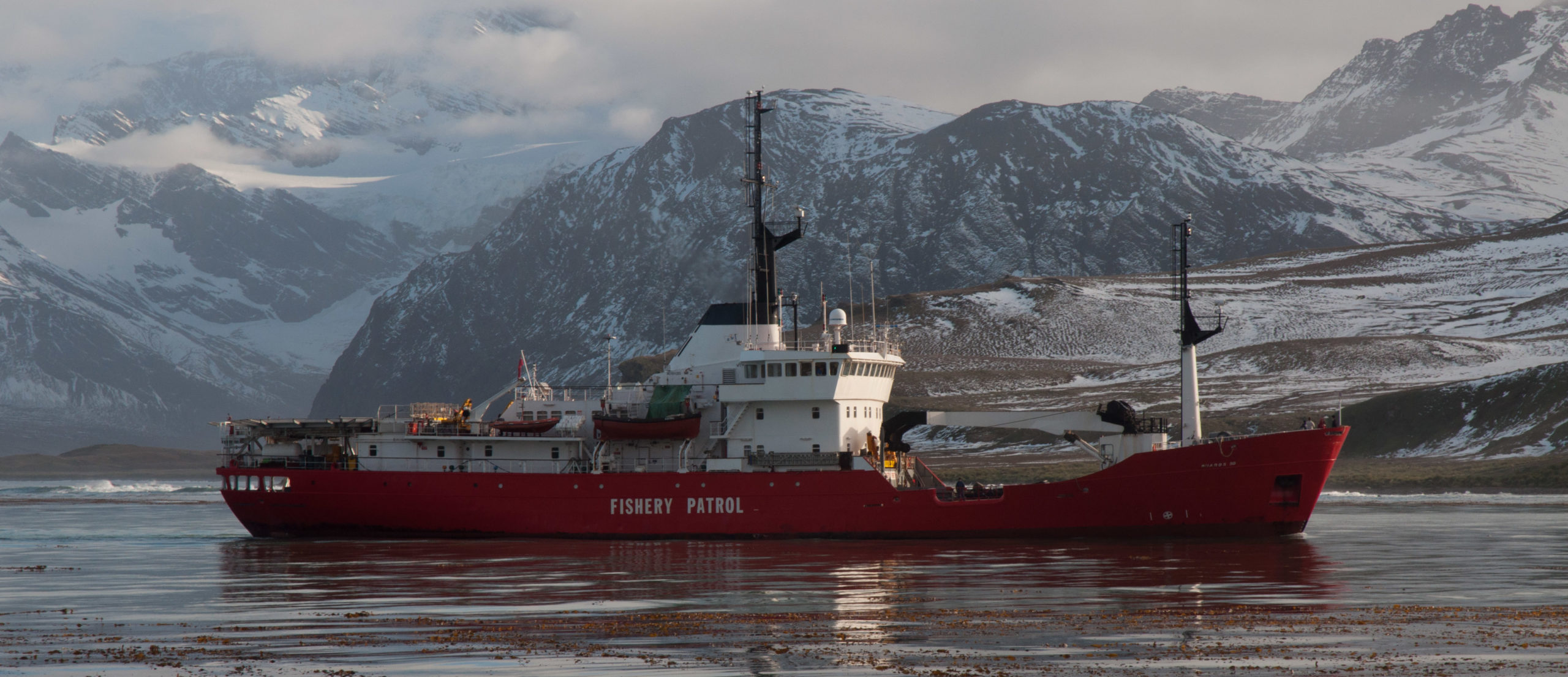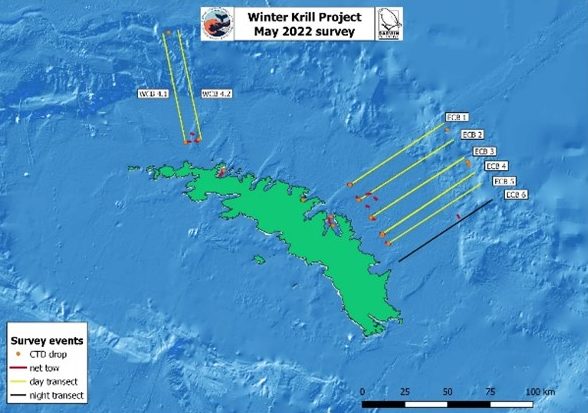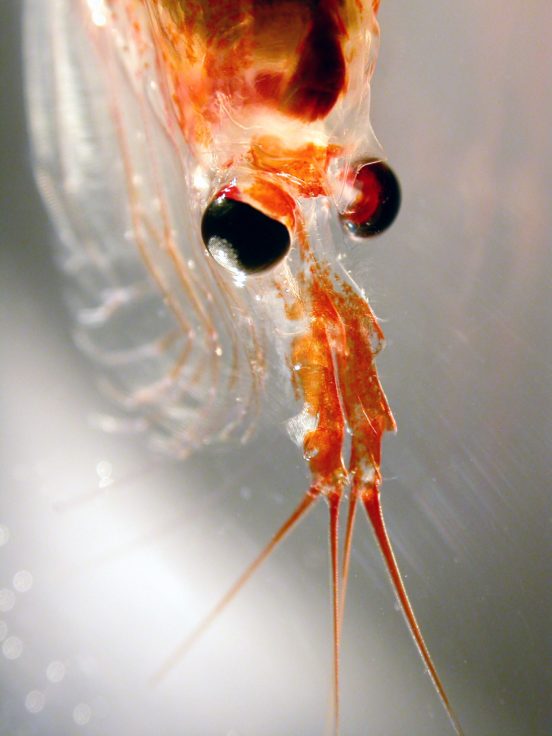Success for krill survey in South Georgia
The second of six winter krill surveys in South Georgia and the South Sandwich Islands is underway.
The first winter krill survey was completed successfully on board the South Georgia and South Sandwich Islands fishery patrol vessel MV Pharos SG in May this year. The surveys are part of a Darwin Plus funded project to improve our understanding of how the krill fishery may affect the krill population and krill-dependent predators in South Georgia.
Earlier this year, MV Pharos SG was fitted with a scientific echosounder so acoustic surveys can take place during the Antarctic winter, when British Antarctic Survey (BAS) research ships are in the northern hemisphere.

The surveys are focused on an area to the north-east of South Georgia. In May, the ship covered 800 nautical miles of transects, which were repeated day and night to investigate how krill distribution changes. The acoustic surveys are combined with plankton nets to catch krill and monitor their condition, at-sea observations of seabirds and marine mammals, and satellite tracking of gentoo penguins to understand more about potential competition between the fishery and the marine predators that rely on the krill for food.

During the May krill survey, the vessel encountered numerous swarms of small krill, as well as 66 humpback and 53 fin whales which were seen feeding on the swarms. The krill were mostly found over the South Georgia shelf, an area of ocean less than 1000m deep.

Dr Tracey Dornan, a biological oceanographer at British Antarctic Survey, says:
“This is the first scientific data collected on krill distribution during the winter months for many years and will provide critical information to support the management of the krill fishery which is restricted to the winter months to avoid competition with breeding wildlife that feed on the small crustaceans. It’s been brilliant working in partnership with the Government of the South Georgia and South Sandwich Islands on this great project.”
The project is a partnership between BAS, the Government of South Georgia & the South Sandwich Islands (GSGSSI) and the Antarctic Research Trust. The project was primarily supported by Darwin Plus, with additional funding from the UK Government’s Blue Belt Programme, the Antarctic Research Trust and GSGSSI.